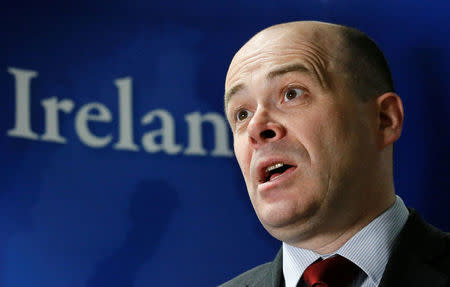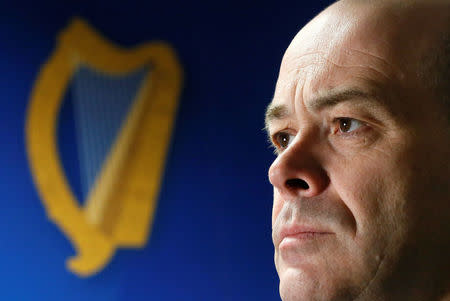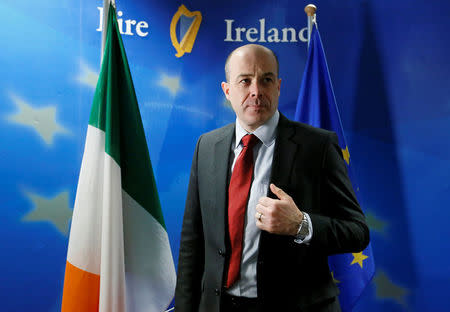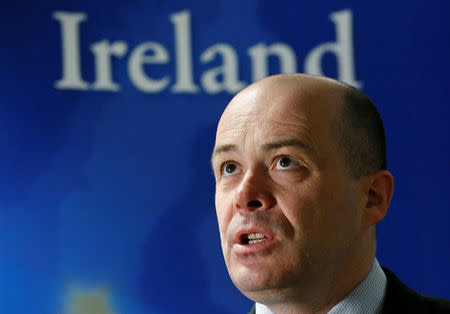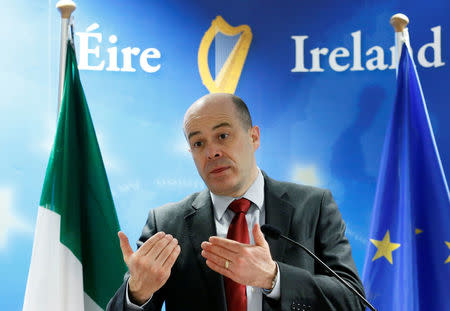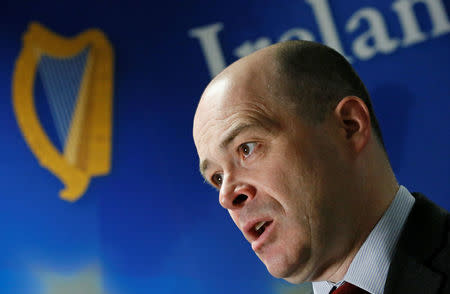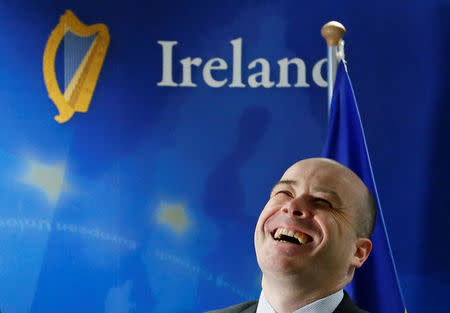Ireland looks to LNG, France supply line in 'post-Brexit era' - minister
By Alissa de Carbonnel BRUSSELS (Reuters) - Plans to ease Ireland's near total dependence on energy imports via Britain have shot to the top of the agenda, the nation's energy minister said on Monday, as it grapples with the risk of how Brexit could alter ties with its key partner. Two projects long in the planning - a power cable to France, built by French grid operator RTE and Ireland's EirGrid, and a liquefied natural gas terminal - are newly being prioritised, minister Denis Naughten told Reuters. "It has become a bigger priority for everyone on foot of Brexit ... because we are so dependent on imports of energy, we need to have options available to us," Naughten said following a meeting of EU energy ministers in Brussels. Although Naughten said neither project was short of financing, he acknowledged they had been slowed by a lack of clarity and disputes over costing for connecting to the distribution network - issues he said were now being tackled. "We are in a very different era now post Brexit and because of that the issues that hadn't been looked at in the past are being revisited," Naughten told Reuters. With an economy highly dependent on trade with Britain, and the only land border with the UK, Ireland is widely considered the country with the most to lose when its bigger neighbour quits the European Union. All the energy links supplying 88 percent of Ireland's energy needs feed from Britain. One of the biggest fears is that Brexit could split Ireland's single electricity market. While Naughten dismissed concerns over the single electricity market, he said the importance of deft management of the impact of Brexit on Ireland's energy security should not be taken lightly. "I don't see an impact of Brexit on the single electricity market," he said, adding the British, Irish and Northern Irish governments had all committed to maintaining it. "It is important for people to remember: The Berlin wall is gone; we still have walls," he added. "And the only way that we can provide long-term peace in northern Ireland is to have economic stability, and energy is a key part of that." (Reporting by Alissa de Carbonnel, editing by David Evans)

 Yahoo News
Yahoo News 